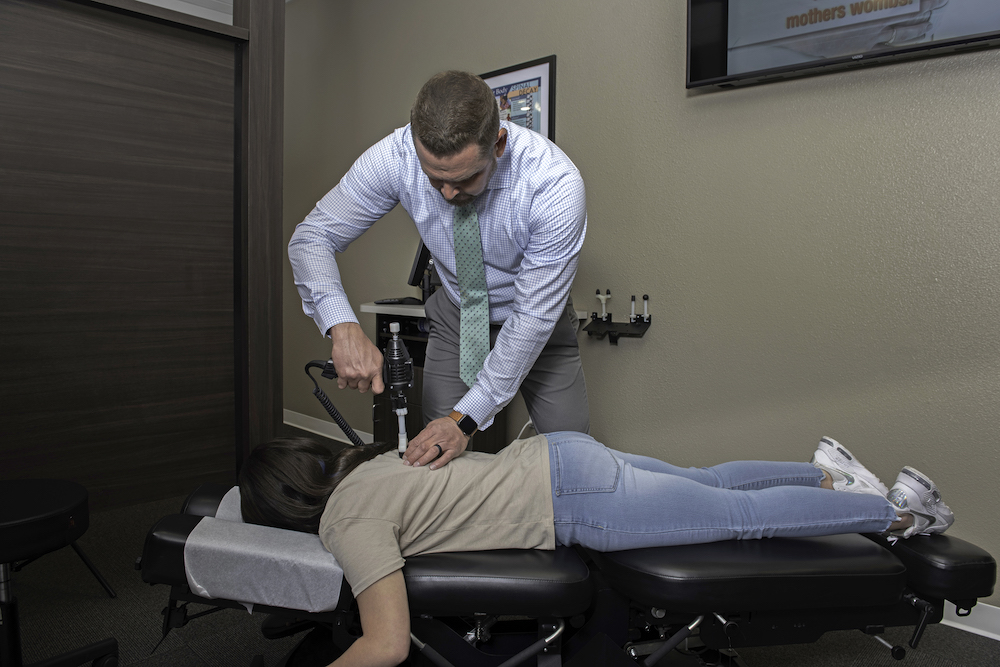Diet & Nutrition for a Healthy Back
5 min read

While exercising and maintaining a healthy weight are key to spine health, you should eat a nutritious diet, too. That's because the muscles and bones of the back and spine must stay strong enough to support the function of your entire body. Otherwise, you could be at risk for conditions like osteoporosis, spinal stenosis and ankylosing spondylitis, a type of arthritis of the spine.
Since good nutrition helps keep your body in optimum condition, we've compiled some spine-friendly nutrients to include in your daily diet.
Calcium
You're probably aware that milk promotes bone health. That's because it contains calcium, a mineral that helps your body keep its bone mass. As you age, maintaining bone mass prevents your bones from becoming brittle and breaking more easily. Calcium also helps prevent osteoporosis, a bone disease that makes the bones weak and is one of the leading causes of spinal fractures.
While calcium is prevalent in dairy products like milk, yogurt and cheese, your diet may require you to skip these items. Fortunately, calcium is available in many other foods, too.
- Spinach, broccoli, kale and other leafy green vegetables
- Legumes like beans, tofu and peanuts
- Fish, including salmon and sardines
- Unexpected sources like oranges and almonds
For your body to use calcium properly, you must also have adequate Vitamin D in your body.
Vitamin D
Calcium can't work on its own. It must be combined with Vitamin D to ensure your body absorbs it properly.
Get Vitamin D in:
- Fortified milk
- Eggs
- Meat
- Sunlight
- Over-the-counter supplements
Magnesium
You may not know much about magnesium, but it's important to your body's overall function. The mineral plays a vital role in your bones' structure and helps your muscles contract and relax. Without the ability to expand and contract properly, your muscles become tight, sore and inflamed.
Magnesium also helps to build strong muscles along your spine. It maintains muscle mass and is involved in hundreds of biochemical reactions in the body, including breaking down the protein you eat.
Get magnesium from foods like:
- Fish such as salmon, halibut and mackerel
- Whole grain pasta and bread, brown rice
- Sesame, sunflower and flax seeds
- Almonds, cashews and peanut butter
- Any type of cooked beans, including black, pinto and garbanzo
- Dark, leafy veggies like kale, spinach, and broccoli
- Avocado, kiwi and bananas
- Dark chocolate
Vitamin K
If you're like most people, you probably don't realize Vitamin K's vital role in your body's function. Like Vitamin D, Vitamin K works alongside calcium to keep your bones healthy. Specifically, Vitamin K helps deposit calcium into the bones, ensuring they stay strong and dense. That prevents osteoporosis, which can lead to painful spinal fractures.
While it's important for bone health, Vitamin K is often missing from your diet. To ramp up Vitamin K in your diet, eat foods like:
- Cheeses, egg yolks and dairy products
- Spinach, kale and collard greens
- Broccoli, brussels sprouts and cauliflower
- Romaine and iceberg lettuce
- Soybean and canola oil
- Liver
Vitamin C
If you feel a cold coming on, you may reach for the Vitamin C to boost your immune system. But did you know Vitamin C is also vital to bone health? Without Vitamin C, your body can't make the collagen that's found in your muscles, bones, tendons and skin. Collagen is like a binder, essentially holding all your body's various parts together. Vitamin C is also an antioxidant, meaning it helps to promote healing in the body. So if you're injured, Vitamin C can help speed the healing process!
Vitamin C can be taken as a nutritional supplement, or you can get your Vitamin C in fruits and vegetables like:
- Citrus fruits
- Berries
- Tomatoes
- Bell peppers
- Sweet potatoes
Vitamin B12
Your body needs Vitamin B12 to build red blood cells and bone cells. Without enough Vitamin B12, you could become anemic, which heightens the risk of osteoporosis.
Vitamin B12 is commonly found in animal proteins like eggs, poultry, fish, milk, cheese and yogurt. It's not found in plants, so anyone following a plant-based diet should take a supplement.
Other Nutritional Elements for Reducing Back Pain
There's more to good nutrition than vitamins and minerals. Bone and muscle health benefit from many other elements. Including these in your diet will go a long way towards promoting a pain-free life!
Protein
Proteins not only aid in digestion and immune function, but they are also important for bone health. Protein helps maintain, heal and repair bones as well as soft tissues like cartilage and tendons. Be sure to include protein in your daily diet. Meat, cheese, yogurt, almonds and soy products are good sources of protein.
Iron
Iron is crucial to whole-body health. Not only is it included in the proteins that deliver oxygen to the body, but it helps in the production of collagen and Vitamin D absorption. All of these are extremely important to bone and muscle health.
Most people get enough iron in their diets, but you can take a supplement or eat foods like liver, shellfish, poultry, red meat, lentils, eggs, beans and whole grains.
Herbs and Spices
Eating delicious food also has health benefits! Some herbs and spices promote healing and help to reduce inflammation. Turmeric helps fix damaged tissue, while rosemary, sage and ginger can reduce inflammation. Add these to your foods or drink as a tea for a healthy treat!
Water
You've been told to drink enough water, right? That's because staying hydrated helps to maintain the elasticity of your joints. Spinal discs are especially vulnerable to a lack of hydration and can begin to shrink. This can lead to painful disc issues like herniation and the decrease of protective padding in the spine. Be sure to drink water every day. Men should drink 15.5 cups a day; women should drink 11.5 cups. Set reminders on your phone or use an app to promote hydration.
Whole Body Wellness at Village Chiropractic
At Village Chiropractic, our doctors do much more than make spinal adjustments. We are concerned with your whole-body wellness, which includes diet, exercise and weight management. Let us help you develop a plan that works for you. Request an appointment today and get started on your path to a pain-free lifestyle.




